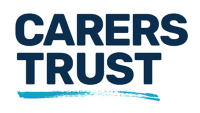Who is a carer?
A carer is anyone who gives unpaid care to a family member, partner or friend who could not cope without their support. This may be due to a long-term illness, disability, a mental health condition or an addiction. A caring responsibility may be short term – such as supporting someone with their recovery following an accident, or long term – such as helping someone with a long-term illness.
Caring responsibilities might include physical care (e.g. helping someone out of bed), personal care (e.g. helping someone wash), emotional support, collecting prescriptions and helping to give medicine, and providing emergency care. For young adult carers, this might also involve practical household tasks (e.g. cooking and cleaning), managing the family budget, and looking after siblings.
This guide includes guidance which is applicable to carers of all ages, but there are different considerations to be aware of for young adult carers (those aged 16-25) and older applicants, which we try to clarify throughout.


